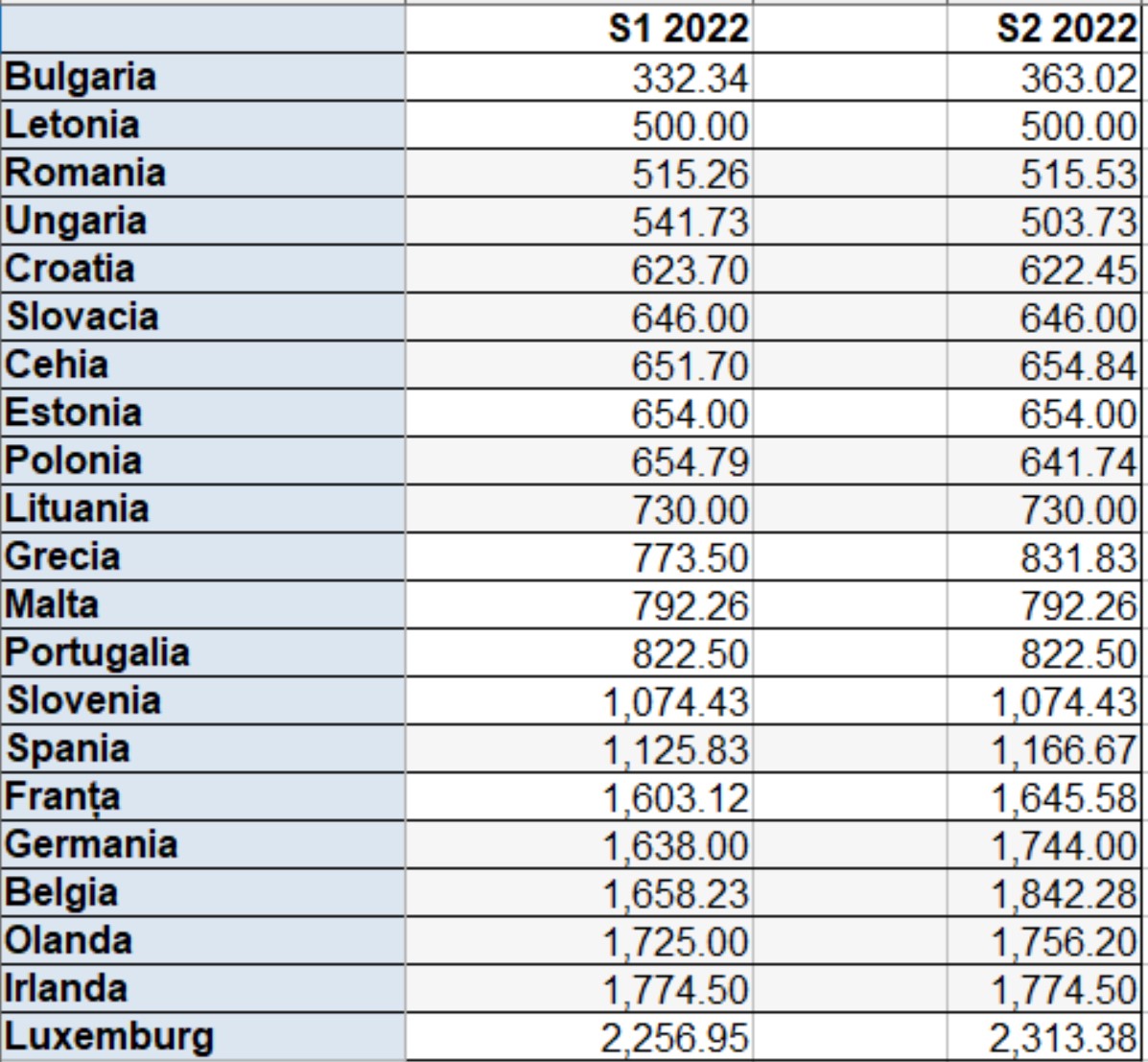
The minimum gross salary may increase to 3,000 lei from January 1, 2023, compared to 2,550 as of now. Despite this, Romania remains at the bottom of the European ranking of minimum incomes.
Romania currently has the third lowest minimum wage in the EU, behind only Latvia and Bulgaria.
A minimum gross salary of 3,000 lei would even now put our country in fifth place from the bottom to the top in the European top.
But, according to Eurostat data, in the second half of the year, minimum incomes increased in several countries, which means that Romania’s chances of moving up in the EU ranking are slim.
21 countries in the European Union have a minimum wage, with the exception of Italy, Cyprus, Austria, Finland, Sweden and Denmark.
Currently, the highest minimum wage in Luxembourg is almost five times higher than in Romania.

Data sources: Eurostat
The minimum wage may increase to 3,000 lei gross from January 1, 2023, government sources said on Thursday.
Prime Minister Nicolae Chuke said on Friday that there was a possibility of raising the minimum wage and pension from 2023, saying there was political will to do so, but the figures would be released after next year’s budget forecast.
“We have argued from the very beginning that we should take care to agree on this decision. There is a possibility that from 2023, as we have discussed in the coalition and stated each time, we will support an increase in the minimum wage and, of course, pensions, only that these data, as is normal and responsible, will be made public after we have the budget forecast for 2023,” said the head of the Government.
PSD Labor Minister Marius Budai recently announced that the Social Democrats will propose raising the minimum wage to 3,000 lei.
It should be noted that on Wednesday the European Parliament approved the directive on the European minimum wage. It would oblige member states that have a minimum wage for each economy, including Romania, to “ensure that the minimum wage they set ensures a decent living for workers”, also proposing a calculation formula linked to the average wage fee
The directive is expected to be adopted by the EU Council this month, after which it will be published in the EU’s Official Journal, and member states will have a maximum of 2 years to transpose it into their national laws. Adoption at this stage is formal, as the text has already been agreed after negotiations between the European Parliament and the Council of the EU.
Most importantly, the directive stipulates that setting the minimum wage “remains a national prerogative,” according to an EP press release sent to StartupCafe.ro. However, member states, including Romania, “must ensure that the minimum wages they set allow workers to live decently, taking into account the cost of living and the general level of wages.” “To assess the adequacy of the existing statutory minimum wage, member states can use as a reference a basket of goods and services at real prices or can set them at 60% of the average gross wage and 50% of the average gross wage,” May told the Strasbourg parliament.
Photo: Dreamstime.com
Source: Hot News RO
Robert is an experienced journalist who has been covering the automobile industry for over a decade. He has a deep understanding of the latest technologies and trends in the industry and is known for his thorough and in-depth reporting.